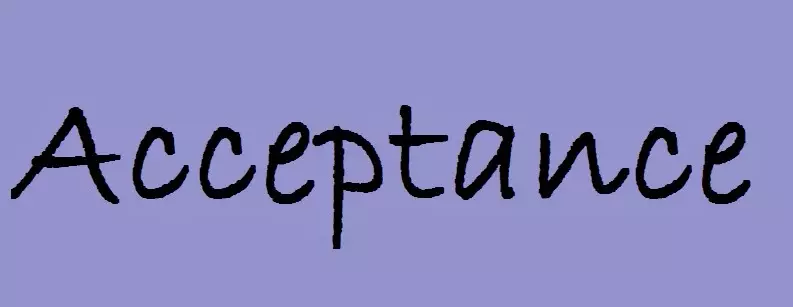Discuss the Position of a Minor with Regard to the Contracts Entered into by Him.
Position of a Minor with Regard to the Contracts Entered into by Him.
One of the essential ingredient of a valid contract stated in Section 10 is that the parties making the agreement must be competent to contract. Any one cannot enter into a contract, he must be competent to contract according to the law.
Section 11 provides that every person is competent to contract who is of the age of majority according to the law to which he is subject, and who is of sound mind, and is not disqualified from contracting by any law to which he is subject. In simple words, a person who is of the age of majority, of sound mind and is not disqualified by law from contracting is competent to contract. Age of Majority. Section 3 of the Indian Majority Act declares every person to be of the age of majority who has completed 18 years of age. However, where a guardian has been appointed to a minor or his property, he attains majority at the age of 21.
Sound Mind:
Section 12 of the Indian Contract Act defines the term ‘Sound Mind’ as follows : ‘A person is said to be of sound mind for the purpose of Making a contract if, at the time when he makes it, he is capable of understanding it and forming a rational judgment as to its effects upon his interest. So, a person of sound mind is one who fulfills two conditions:
- He should be capable of understanding the contract,
- He should be capable of forming a rational judgment about the effects of the contract on his interest.
If a person does not satisfy both these conditions, he is person of unsound mind. A person, who is usually or occasionally of unsound mind, may make a contract only When he is of sound mind. A lunatic can, therefore, make a contract only during lucid interval, i.e., when of sound mind.
Disqualified by law to make a contract:
The following persons are disqualified by law to contract
- Alien enemy An alien is a person who is the citizen of a foreign country. Alien enemy is the citizen of a country at war with India.
- A convict during the period he undergoes his punishment.
- An insolvent during the insolvency period expecting certain transactions or with the leave of the court.
Contracts with Minor:
A minor is a person who has not attained the age of majority as defined in the preceding paragraphs. Section 11 declares a minor incompetent of contracting, a contract with or by a minor shall be void and unenforceable. This fact is accepted in many legal decisions. The case of Ram vs. shyam represents a best example on the issue. In this case, a minor mortgaged his house in favor of a moneylender to secure a loan of Rs. 20,000 and received Rs. 8,000 from the mortgagee. The mortgagee filed a suit for the recovery of his mortgage money and for sale of property in case of default. The Privy Council held that an agreement by a minor was absolutely void as against him and therefore the mortgagee could not recover the mortgage money.
Minor’s Agreements:
The law relating to minor’s agreements and effects thereof can be summed up a under,
An agreement with a minor is void : An agreement with a minor is void from the very beginning and void absolutely. In other words, an agreement wan a minor does not create any legal rights and obligation between the concerned parties.
The rules of estoppel does not apply to a minor : A minor is not bound by his misrepresentations. But if a minor enters into a contract by fraudulently representing himself to be a major, he cannot be prevented from pleading minority as defence. The rule of estoppel cannot be applied against the minor.
A minor’s agreement cannot be ratified by minor on his attaining Majority : Ratification implies approval or confirmation. A minor cannot confirm an agreement made by him during minority on attaining majority. This is because ratification relates back to the date of making of the contract and therefore a contract which was void from the very beginning can not be made valid by subsequent ratification.
Minor’s liability in tort : The term ‘tort’ implies a civil wrong for which a suit can be filed by the affected party. If a minor enters into an agreement by misrepresenting his age, he cannot be sued either for damages for breach or in the form of damages for tort (i.e., deceit) because this would be indirectly enforcing the agreement which is void.However, if wrongful act (i.e.,tort) of minor is independent of the contract, then minor is liable for damages in tort. In the ease of Burnard vs Haggis, A, a minor borrowed a mare from B for riding only under instructions not to jump it. He lent the horse to his friend who jumped and killed her. He was held liable for tort.
Beneficial contracts : A minor can be a beneficiary or promisee. In other words, if a contract is beneficial to a minor, it can be enforced by him. In Raghava Chariar vs. Srinivasa, A executed a mortgage in favor of B (a minor) who advanced a certain sum of money to A. The court in this case held that the mortgage is enforceable by minor as the transaction was for his benefit.
Minor’s liability for necessities : Section 68 of the Indian Contract Act, provides that ‘if a person incapable of entering into a contract or anyone whom he is legally bound to support is supplied by another person with necessaries suited to his condition in life, the person who has furnished such supplies is entitled to be reimbursed from the property of such incapable person’. So if a minor or his dependents are supplied necessities by someone, minor’s property is liable.
Position of minor’s parents or guardian : Minor’s contract do not impose any liability on his parents or guardian even if the contracts are for necessaries. However, when the minor acts as an agent of his parents or guardian, they can he held liable for his acts.
Minor agent : A minor can act as an agent but he Will not be personally liable for any of his acts. The principal will be liable to the third parties for the acts of the minor agent which he does in the ordinary course of dealings.
Minor partner : Section 30 of partnership Act provides that a minor may be admitted to benefits of partnership with the consent of all other partners. His liability is limited to his share in partnership. He cannot take part in management.
Minor as an insolvent : A minor cannot be declared as an insolvent. This is so because all agreements with a minor are void. Moreover, the minor is not personally liable for any debt incurred during the period of his minority.
Minor shareholder : A minor cannot become shareholder in a company since, he is incompetent to enter into a contract. A company can also refuse to register, transfer or transmission of shares in favor of a minor unless the shares are fully paid. In case a minor inherits certain shares, he may become a shareholder acting through his lawful guardian.
Minor under Negotiable Instruments Act : Minor can draw or negotiate negotiable instruments (ie., Bill of Exchange, Promissory Note, Cheque). But he incurs no personal liability in such cases. A negotiable instrument drawn in favor of a minor can be enforced by him. A minor can be a promisee or payee. He can also become an endorse by transfer of a negotiable instrument.





